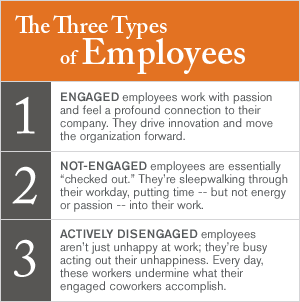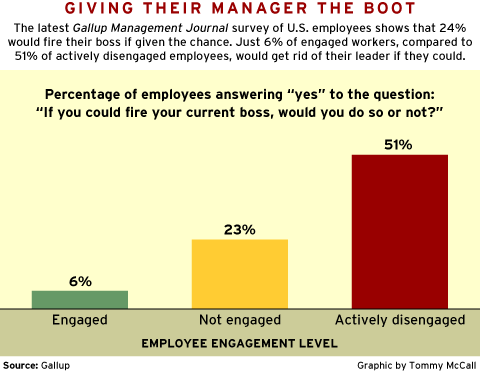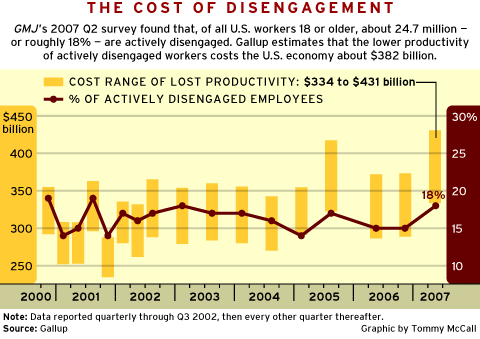Popular media often lampoons the boorish behavior and limited intellect of the stereotypical corporate manager. From the clueless supervisors such as Michael Scott (on NBC's sitcom The Office) and Bill Lumbergh (from the cult comedy film Office Space) to the pointy-haired boss in the popular comic strip "Dilbert," pop culture is littered with examples of dimwitted directors and belligerent bosses who are often pitted against the protagonist -- the modern employee. And though these characterizations are created for punch lines, chances are, most employees have encountered at least one or two bosses like these during their careers.
 |
But what are employees' options? If they were fictional employees at Dunder Mifflin, they could make fun of Scott behind his back. If they worked at Initech, they could try to avoid answering Lumbergh's calls to work over the weekend.
But what would happen if Dilbert could tell his pointy-haired boss exactly what he was thinking in those comic thought bubbles? Would he fire the head honcho? It's likely that the employees managed by Scott and Lumbergh would show their boss the door. But how do the opinions of these pop culture personas compare with those of the actual U.S. workforce? The answer, it turns out, depends on whether employees are engaged in their workplace.
Survey says . . .
The ║┌┴¤═° Management Journal (GMJ) surveyed U.S. employees to discover if employees would fire their boss -- and what effect workplace engagement might have on their willingness to give their boss the boot. ║┌┴¤═° researchers studied employee responses to see which factors differed most strongly among engaged employees (26% of respondents) and those who were not engaged (56%) or actively disengaged (18%). (See graphic "The Three Types of Employees.")
 |
The results of this poll show that 24% of employees in the United States would fire their boss if given the chance. Not surprisingly, engaged employees aren't the ones wanting to bid their manager farewell. Just 6% of engaged workers say they would fire their boss if they had the chance, while 51% of actively disengaged associates would get rid of their leader if they could.
This finding is consistent with earlier GMJ research, which indicates that engaged employees consider their relationship with their manager to be crucial to their success. Of engaged employees, 49% strongly agree that "A strong positive relationship with this person is crucial to my success at work," while just 12% of actively disengaged employees strongly agree with the same statement. In contrast, just 6% of engaged employees strongly disagree with this statement, compared to 33% of actively disengaged employees who strongly disagree with this statement. (See "Getting Personal in the Workplace" in the "See Also" area on this page.)
║┌┴¤═° uses its employee engagement survey, the Q12, to measure workplace engagement and glean insights about the kinds of manager behaviors that are most likely to cause employees to disengage from their workplaces. (See "Feedback for Real" in the "See Also" area on this page.) The GMJ survey results show that employees who doubt that their manager cares about them as an individual are far more likely to want to oust their boss.
 |
Slightly more than half (53%) of employees who say they would fire their boss if they had the chance disagree with the Q12 item "My supervisor, or someone at work, seems to care about me as a person." Conversely, just 8% of workers who wouldn't fire their manager disagree with the "supervisor cares" item. It seems simple enough: If workers feel like their supervisor or someone at their company cares for them, they aren't as likely to want to fire their boss, according to workplace engagement research.
Less likely to recommend their company
Pop culture provides extreme examples of what can happen when employees don't want their boss to supervise them anymore. ║┌┴¤═° research, in contrast, reveals a more subtle impact on business outcomes, but one that can profoundly affect a company's workforce and its sales and service. Workers who would fire their boss, for instance, are more than twice as likely as those who wouldn't dismiss their manager to not agree with the statement "I will be with my company one year from now" (37% versus 17%). Just about 20% of the U.S. workforce overall disagrees with this statement.
So, if employees who want to fire their manager are less likely than others to be working at their company a year from now, who will take their place if they leave? Probably not a friend or family member. Just 11% of workers who would fire their boss would recommend their current company as a great place to work to friends and family; but more than 40% of workers who would not fire their leader would recommend their company as a great place to work. Once again, the answers to this question among those who would not dismiss their boss are closer to those of the overall U.S. workforce (49%).
Employees who want to fire their manager not only won't recommend their company as a place to work to friends and family, they also aren't in a hurry to recommend their company's products and services. Only one-third of these workers (33%) say they would endorse their organization's goods and services. This is a significantly smaller percentage compared to responses to this question from those who would not fire their boss (54%) and the overall U.S. working population (49%).
Employees who want to fire their boss -- especially workers who are actively disengaged -- aren't likely to burn down the office building. They probably limit their grousing about their boss to their own inner monologues or to quiet exchanges with other employees over cubicle walls. But employees' disengagement with their supervisor can have real -- and negative -- consequences for their companies.
 |
Results of these surveys are based on nationally representative samples of about 1,000 employed adults aged 18 and older. Interviews were conducted by ║┌┴¤═° by telephone quarterly from October 2000-October 2002, then semi-annually thereafter. For results based on samples of this size, one can say with 95% confidence that the error attributable to sampling and other random effects could be plus or minus three percentage points. For findings based on subgroups, the sampling error would be greater.